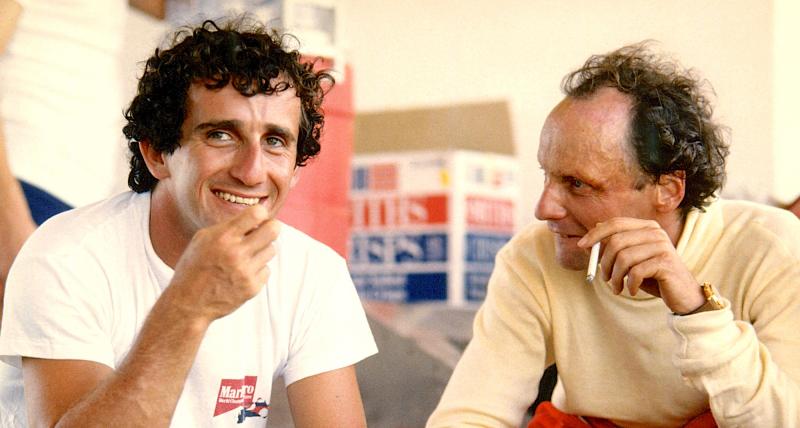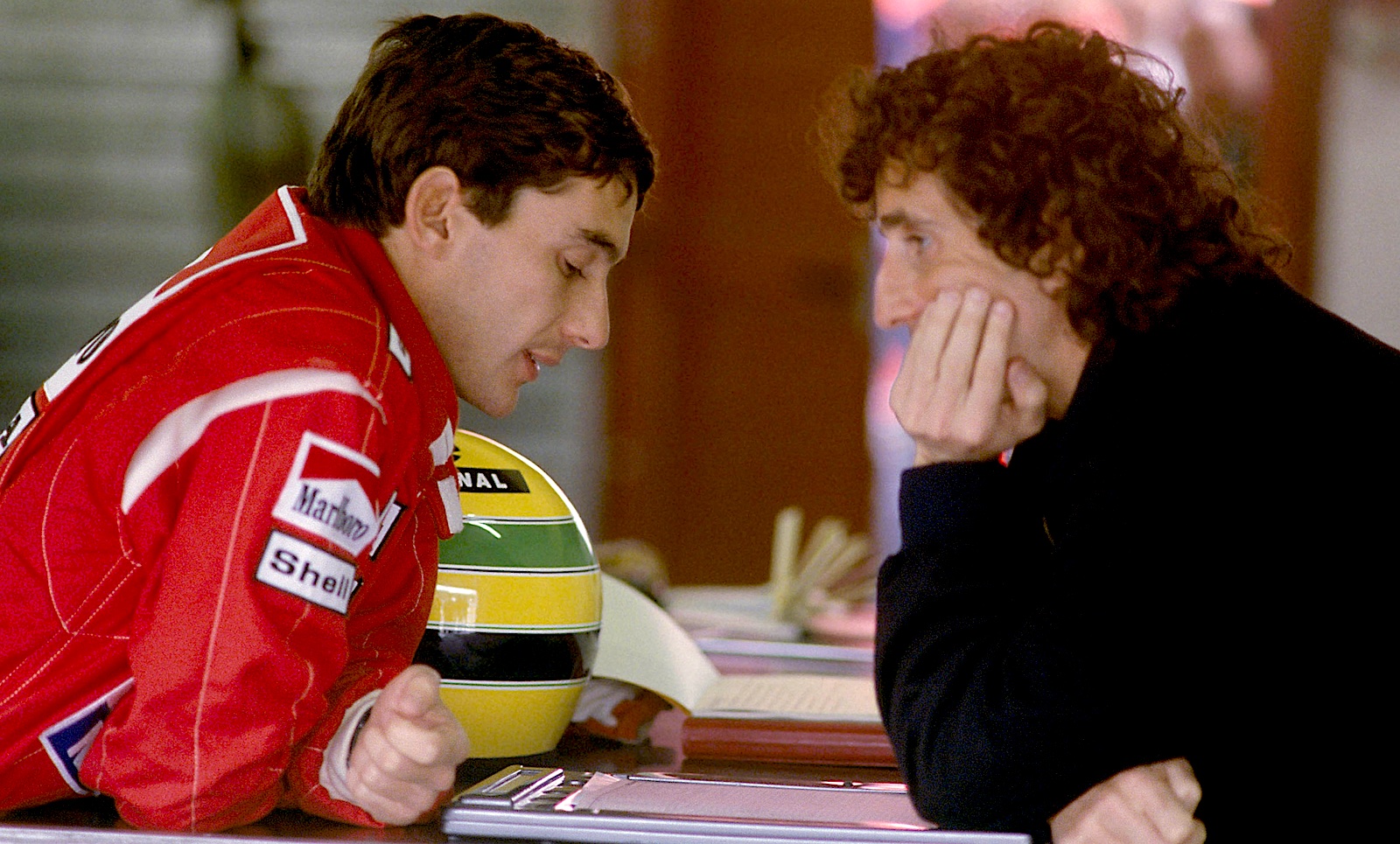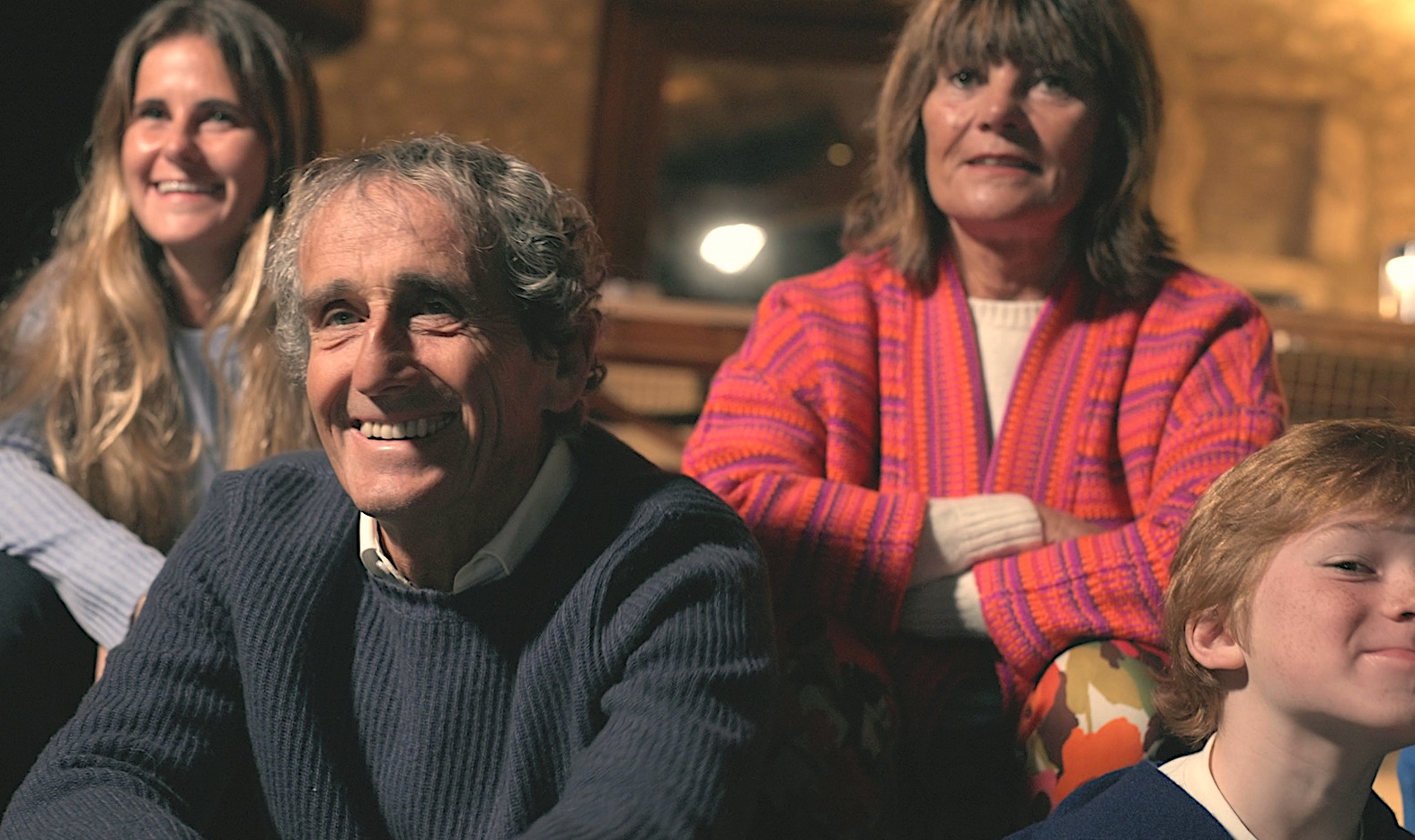Prost, BBC 4 review - life and times of the driver they called 'The Professor' | reviews, news & interviews
Prost, BBC 4 review - life and times of the driver they called 'The Professor'
Prost, BBC 4 review - life and times of the driver they called 'The Professor'
Alain Prost liked being world champion so much he did it four times

With Brad Pitt’s much-trumpeted F1 movie about to screech noisily into the multiplexes, it’s not a bad time to be reminded of the career of one of the sport’s indisputable greats.
This six-part documentary history of Prost’s life and times was made by French company Studiocanal, and tackles its task with a briskly pragmatic approach which is pretty much the exact opposite of the lavishly-budgeted and cunningly manipulative Drive to Survive formula. The six episodes barely run to half an hour each as they assess the various phases of Prost’s life and career, but with plenty of input from Prost himself and the participation of his family and various professional observers, it adds up to a revealing portrait of both the man and the era during which he raced (pictured below, Senna and Prost).
 Prost speaks movingly about his older brother Daniel, who fought a long and painful battle with brain and lung cancer before he died in 1986, and sketches in the history of his parents, who ran a furniture business and were of Armenian descent. He drew enduring inspiration from his grandmother, Victoria, who saw her father and seven brothers murdered during the Armenian genocide but “still managed to be happy”.
Prost speaks movingly about his older brother Daniel, who fought a long and painful battle with brain and lung cancer before he died in 1986, and sketches in the history of his parents, who ran a furniture business and were of Armenian descent. He drew enduring inspiration from his grandmother, Victoria, who saw her father and seven brothers murdered during the Armenian genocide but “still managed to be happy”.
Prost stumbled into his destiny almost by accident, when he had his first drive in a go-kart at a track near Cannes. Even though he was nursing a broken arm, it proved to be a duck-to-water moment, and he developed an obsession with karting that brought him over 100 trophies. “He was a brawler, he stood up for himself,” as his mother Rosa put it. He then worked his way up through the motorsport formulas, and in 1980 he was signed up for an F1 drive with McLaren.
This didn’t work out too well, and the following season he switched to Renault, but felt that the team always favoured his teammate, René Arnoux, even giving him a more powerful engine than Prost’s. “Renault betrayed me,” Prost declares darkly, suffering a little excessively from racing driver paranoia. “All the time, they betrayed me all my life.”
It was after he rejoined McLaren in 1984 that the pieces began to fall into place, not least because Prost benefited greatly from the wisdom and generosity of teammate Niki Lauda (“an embodiment of honesty in a field full of liars,” as Prost describes him). In 1998, Ayrton Senna’s arrival at McLaren set the scene for one of the most combustible partnerships in F1 history, as both drivers fought hammer and tongs for supremacy. Competitiveness degenerated into skulduggery and dirty tricks, with the pair of them taking each other off the track in championship-deciding collisions in Suzuka in Japan in 1989 and 1990.
 They appeared to share a mutual loathing, until the fateful 1984 season in which Senna was driving for Williams and Prost was by now out of the car and into the commentary box. Senna suddenly became warmer and friendlier, and had found that without Prost to race against, he lost his focus and will to win. He seemed insecure and wasn’t happy with his Williams car. His instincts were proved correct when he died in a horrible crash at Imola, on one of F1’s darkest days.
They appeared to share a mutual loathing, until the fateful 1984 season in which Senna was driving for Williams and Prost was by now out of the car and into the commentary box. Senna suddenly became warmer and friendlier, and had found that without Prost to race against, he lost his focus and will to win. He seemed insecure and wasn’t happy with his Williams car. His instincts were proved correct when he died in a horrible crash at Imola, on one of F1’s darkest days.
Prost bailed out at the right time, and scenes of him gathered with his family to watch old home movies (pictured above) suggest a man coasting blissfully through a peaceful retirement. You’d have to reckon he still has a few nightmares and sleepless nights, though.
- All episodes of Prost are available on BBC iPlayer
The future of Arts Journalism
You can stop theartsdesk.com closing!
We urgently need financing to survive. Our fundraising drive has thus far raised £49,000 but we need to reach £100,000 or we will be forced to close. Please contribute here: https://gofund.me/c3f6033d
And if you can forward this information to anyone who might assist, we’d be grateful.

Subscribe to theartsdesk.com
Thank you for continuing to read our work on theartsdesk.com. For unlimited access to every article in its entirety, including our archive of more than 15,000 pieces, we're asking for £5 per month or £40 per year. We feel it's a very good deal, and hope you do too.
To take a subscription now simply click here.
And if you're looking for that extra gift for a friend or family member, why not treat them to a theartsdesk.com gift subscription?
more TV
 The Count of Monte Cristo, U&Drama review - silly telly for the silly season
Umpteenth incarnation of the Alexandre Dumas novel is no better than it should be
The Count of Monte Cristo, U&Drama review - silly telly for the silly season
Umpteenth incarnation of the Alexandre Dumas novel is no better than it should be
 The Narrow Road to the Deep North, BBC One review - love, death and hell on the Burma railway
Richard Flanagan's prize-winning novel becomes a gruelling TV series
The Narrow Road to the Deep North, BBC One review - love, death and hell on the Burma railway
Richard Flanagan's prize-winning novel becomes a gruelling TV series
 The Waterfront, Netflix review - fish, drugs and rock'n'roll
Kevin Williamson's Carolinas crime saga makes addictive viewing
The Waterfront, Netflix review - fish, drugs and rock'n'roll
Kevin Williamson's Carolinas crime saga makes addictive viewing
 theartsdesk Q&A: writer and actor Mark Gatiss on 'Bookish'
The multi-talented performer ponders storytelling, crime and retiring to run a bookshop
theartsdesk Q&A: writer and actor Mark Gatiss on 'Bookish'
The multi-talented performer ponders storytelling, crime and retiring to run a bookshop
 Ballard, Prime Video review - there's something rotten in the LAPD
Persuasive dramatisation of Michael Connelly's female detective
Ballard, Prime Video review - there's something rotten in the LAPD
Persuasive dramatisation of Michael Connelly's female detective
 Bookish, U&Alibi review - sleuthing and skulduggery in a bomb-battered London
Mark Gatiss's crime drama mixes period atmosphere with crafty clues
Bookish, U&Alibi review - sleuthing and skulduggery in a bomb-battered London
Mark Gatiss's crime drama mixes period atmosphere with crafty clues
 Too Much, Netflix - a romcom that's oversexed, and over here
Lena Dunham's new series presents an England it's often hard to recognise
Too Much, Netflix - a romcom that's oversexed, and over here
Lena Dunham's new series presents an England it's often hard to recognise
 Insomnia, Channel 5 review - a chronicle of deaths foretold
Sarah Pinborough's psychological thriller is cluttered but compelling
Insomnia, Channel 5 review - a chronicle of deaths foretold
Sarah Pinborough's psychological thriller is cluttered but compelling
 Live Aid at 40: When Rock'n'Roll Took on the World, BBC Two review - how Bob Geldof led pop's battle against Ethiopian famine
When wackily-dressed pop stars banded together to give a little help to the helpless
Live Aid at 40: When Rock'n'Roll Took on the World, BBC Two review - how Bob Geldof led pop's battle against Ethiopian famine
When wackily-dressed pop stars banded together to give a little help to the helpless
 Hill, Sky Documentaries review - how Damon Hill battled his demons
Alex Holmes's film is both documentary and psychological portrait
Hill, Sky Documentaries review - how Damon Hill battled his demons
Alex Holmes's film is both documentary and psychological portrait
 Outrageous, U&Drama review - skilfully-executed depiction of the notorious Mitford sisters
A crack cast, clever script and smart direction serve this story well
Outrageous, U&Drama review - skilfully-executed depiction of the notorious Mitford sisters
A crack cast, clever script and smart direction serve this story well
 Prost, BBC 4 review - life and times of the driver they called 'The Professor'
Alain Prost liked being world champion so much he did it four times
Prost, BBC 4 review - life and times of the driver they called 'The Professor'
Alain Prost liked being world champion so much he did it four times

Add comment